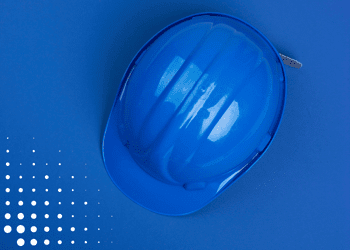Not effectively evaluating you needs, exploring your options, and/or negotiating the best terms with telecom providers can hurt your company. Although a relocation can be overwhelming, it’s the ideal time to reassess your tech and upgrade your infrastructure. If done right, your relocation can result in increased speeds, reduced costs, and more reliable connections.
It’s true that many IT execs still consider fiber as the gold standard in broadband connectivity, however the increasing importance of cloud operations is leading more businesses to choose fixed wireless solutions to satisfy their needs, including additional bandwidth, greater reliability, and improved performance. If you’re not yet sold on the benefits of fixed wireless, here are 5 reasons to consider switching before your business’s relocation.
5 Reasons to Consider Fixed Wireless Instead of Fiber for Your Business Relocation
- Lower Latency: The increased number of hops in optical networks can generate latency and noise that persist all the way to the endpoint. Fewer hops in fixed networks reduces end-to-end latency, setting the stage for superior call quality and an improved internet experience compared to traditional fiber connections.
- Increased Reliability: Underground cables leave networks vulnerable to disruption by construction or other unforeseen factors. On the other hand, Fixed wireless connections are point-to-point and inherently more dependable.
- Fixed Wireless is Just as Fast: Modern enterprises now seek connection speeds in the range from 20 Mbps to 500 Mbps. Fixed wireless networks can easily surpass these speeds with greater reliability than their fiber-based counterparts.
- Lead Time: Getting leased lines or new fiber installation can be a time-consuming venture that takes up to six months, whereas microwave links can be installed within as little as 4 to 5 days.
- Dependability: When fiber and leased lines fail, many businesses switch to wireless solutions as a means to minimize downtime and manage the risk of communication loss.
Whether your business is relocating across town or across the country, you may face a number of challenges—don’t let your fiber connection be one of them. Fixed wireless connections make more sense for modern businesses. No one can help you make the switch more smoothly than MHO—a team of IT experts who live to upgrade and streamline tech for companies just like yours. Contact us today to start discussing your options.
Sources:
https://www.linkedin.com/pulse/5-reasons-why-fixed-wireless-better-than-fiber-optic-business-meyer/
https://www.forbes.com/sites/centurylink/2017/01/27/fiber-versus-wireless-which-will-win-the-bandwidth-battle/



![[Infographic] Fixed Wireless: What You Need To Know](https://blog.mho.com/wp-content/uploads/2017/06/Screenshot-2025-06-24-141710.png)


